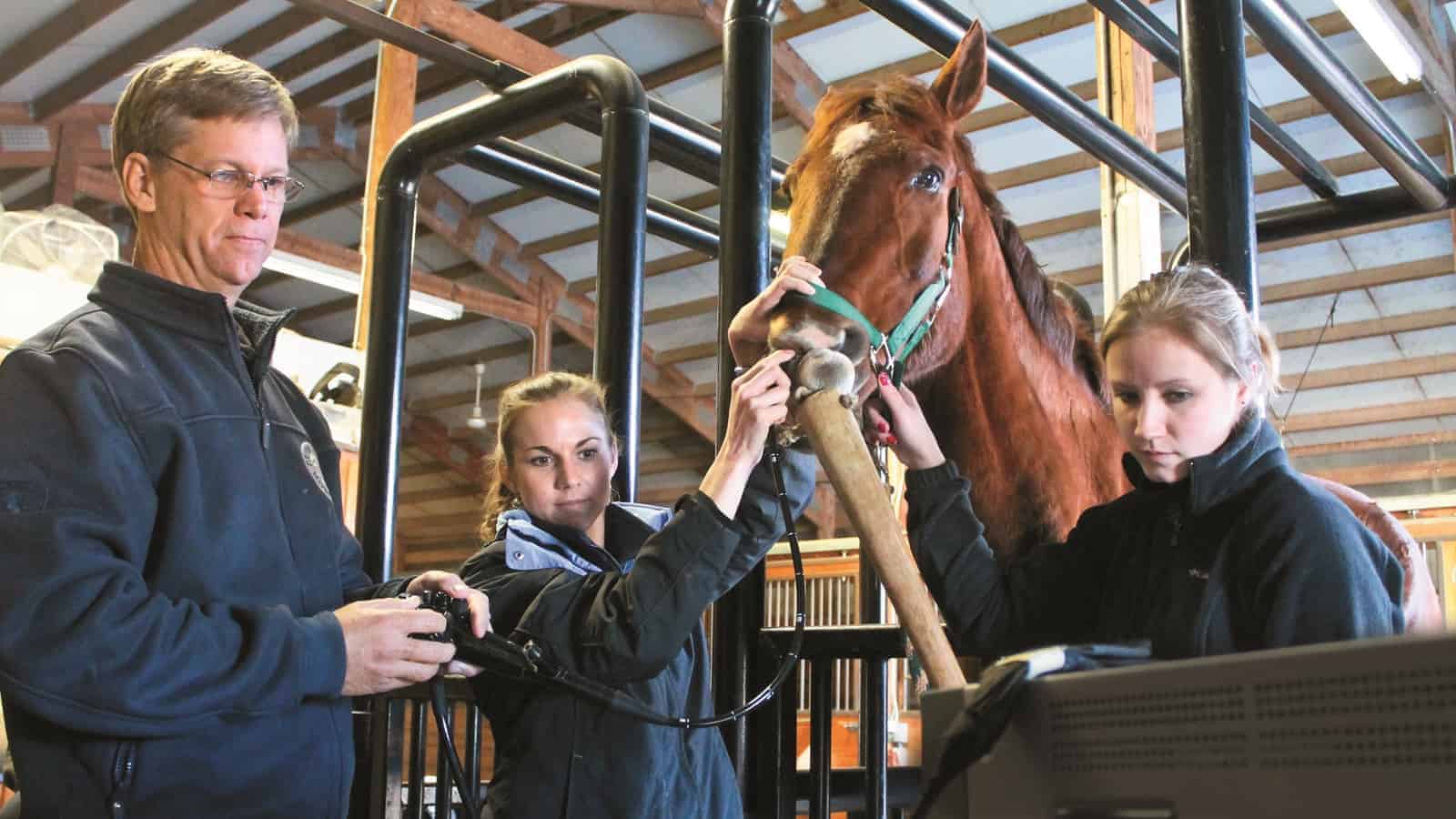Could You Be Missing the Signs of Gastric Ulcers in Horses?

Less-than-optimal performance, resistance to work, and training difficulties are all common issues associated with gastric ulcers, which can develop in as few as five days. If you have noticed behaviors such as your horse pinning his ears while being groomed, or kicking out when the girth is tightened, equine stomach ulcers could be a possibility, and it might be time to contact your veterinarian.
“When horses are having behavioral issues or even decreased performance in the show ring, riders and trainers should consider stomach ulcers,” says Hoyt Cheramie, DVM, MS, Dipl. ACVS, senior equine professional service veterinarian for Boehringer Ingelheim. “An equine veterinarian will be able to diagnose ulcers via gastroscopy.”
Because stomach ulcers can’t be seen with the naked eye, gastroscopy is the only way to definitively diagnose them. The exam provides the extra benefit of allowing your veterinarian to assess current stomach conditions and grade ulcers, if they’re present. Your veterinarian will examine several parts of the stomach in search of anything abnormal, such as ulcerations, erosions, reddening, thickening, abnormal coloring, and sometimes parasites such as bot larvae. He or she will also note where the stomach ulcers are located—in the squamous area or the glandular area.
Squamous ulcers are the most common, and are found in the upper part of the stomach; this part of the stomach has a thinner lining that isn’t protected from the stomach acid. If your veterinarian finds any squamous ulcers, he or she will grade them according to severity and take photos or videos to document them for comparison after treatment.

“Horse owners are sometimes very surprised at the exam findings,” Cheramie says. “This is why gastroscopy is so useful—to truly know what’s going on inside the horse’s stomach so the veterinarian can diagnose the ulcers and prescribe appropriate treatment.”
The stress of training, showing and traveling, along with the way horses are commonly fed and managed, can contribute to the development of ulcers. If your horse is diagnosed with ulcers, treatment with omeprazole (available as the U.S. Food and Drug Administration-approved product GastroGard) might be recommended.
In addition to treatment with medication, Cheramie suggests the following as part of ulcer management:
- Providing continuous access to roughage through grazing or hay-restrictive feeders or nets;
- Feeding grain divided into multiple small meals daily; and
- Working with your veterinarian to make other management adjustments as warranted.
Having a horse develop a change in attitude or resistance to work can be challenging for any equestrian. If your horse exhibits signs that could be associated with ulcers, don’t let him suffer. Contact your veterinarian to diagnose, treat, and prevent ulcers appropriately.
Written by:
Edited Press Release
Related Articles
Stay on top of the most recent Horse Health news with












